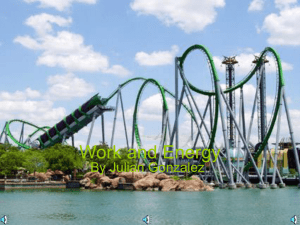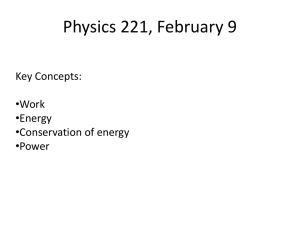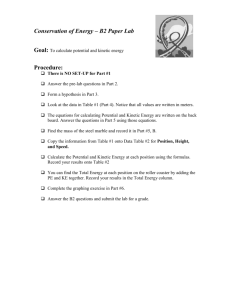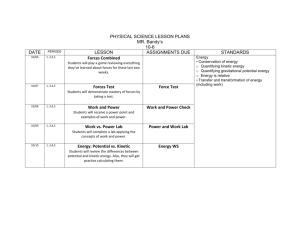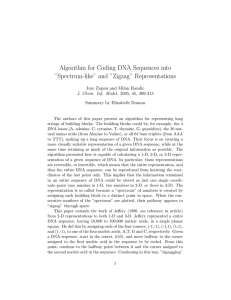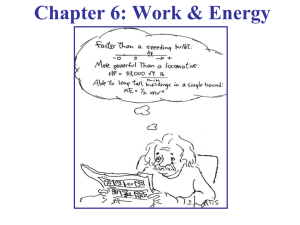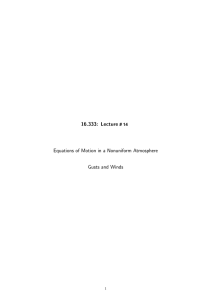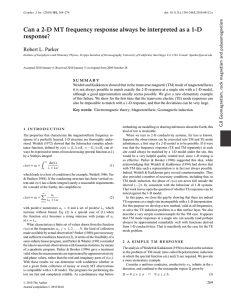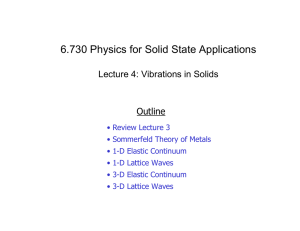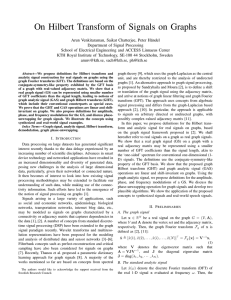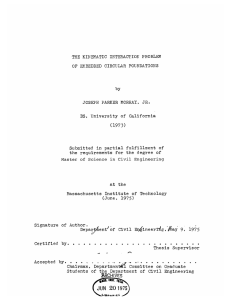Work, Energy, & Power
advertisement
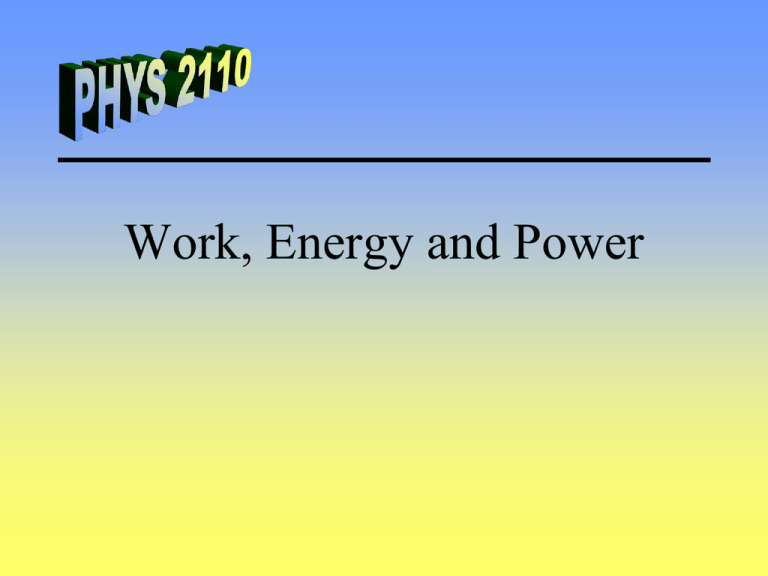
Work, Energy and Power Work in 1-D • Work in 1-D with a constant force is W Fx x • Units - N·m or J (joules) • Ex. While mowing the lawn, I press directly into the handle with a force of 80N. The handle makes an angle of 40° wrt. horizontal. How much work is done on the mower after it is pushed 25m? Work of Friction • On the previous problem, the lawn exerts a frictional force of 50N. How much work does it do on the lawnmower? q F Work in 3-D • Work in 3-D with a constant force is W Fr cosq • Only want component of force in the direction of the displacement. • Work is a scalar. F q • Scalar Product (Dot Product) W F r F r cosq r Dot Product • With unit vectors iˆ iˆ 1 iˆ ˆj 0 ˆj ˆj 1 iˆ kˆ 0 kˆ kˆ 1 ˆj kˆ 0 W Fxiˆ Fy ˆj Fz kˆ rxiˆ ry ˆj rz kˆ • Therefore, W Fx rx Fy ry Fz rz Kite Flying • During a strong gust of wind a kite rises vertically r 2.5m and moves to the west 5.4 m. If the force Fwind from the gust of wind is q 15N directed 20° upward from due east, what work was done on the kite by the gust of wind? 1-D varying Force • Work inx 1-D with a varying force is W F ( x)dx x x0 • Work on a Spring F Assume x0 = 0 Force you exert on the spring. F kx Work you do on the spring x W kxdx kx 0 1 2 2 Note: During the same motion the spring does negative work. Compressed Spring • How much work is done on a spring with a spring constant of 35 N/m if it is compressed 0.50m? x F 3-D Varying Force • Most general form of the definition of work r W r0 F dr • This is called a line integral. • Ex. How much work is done on a 5.0kg block by gravity as it slides down a 1m parabola from x=1m to x=0m? • For the parabola yx 2 dr dx iˆ 2 xdx ˆj -1m 0m 1m Kinetic Energy • Kinetic Energy - Energy of Motion Wnet dv Fnet dx m dx mvdv dt v f Wnet mvdv mv 1 2 vi K mv 1 2 2 vf vi mv mv 2 • Work-Energy Theorem Wnet K f K i K 1 2 2 f 1 2 2 i Braking Car • A 600 kg car is traveling at 24 m/s. The driver slams on the brakes and reduces the car’s speed to 13 m/s before hitting a stalled car. What work was done on the car while braking and what work was done on the car by the collision? v Power • Power - Rate at which energy is used or produced. – Average Power E P t – Instantaneous Power dE P dt – Units - watt (W) At 157 kg • Ex. How much power does and lifting Alexeyev have if lifting the 246 kg weight 2m in 3 s? Energy & Energy Transfer • System/Environment – Kinetic energy – Internal energy – Potential energy • Energy transfer – – – – – – +Work (E → S) Mechanical Waves Heat Matter transfer Electrical transmission EM radiation System Environment
